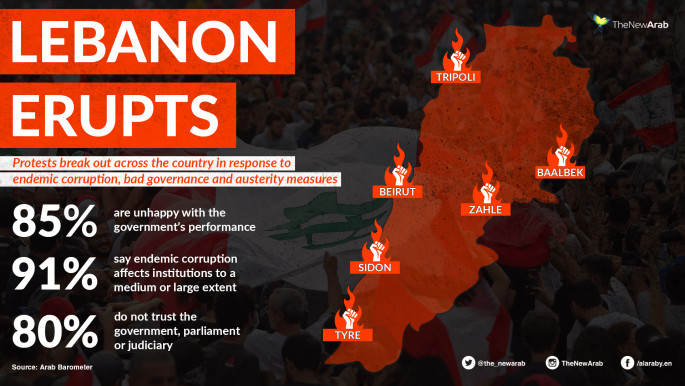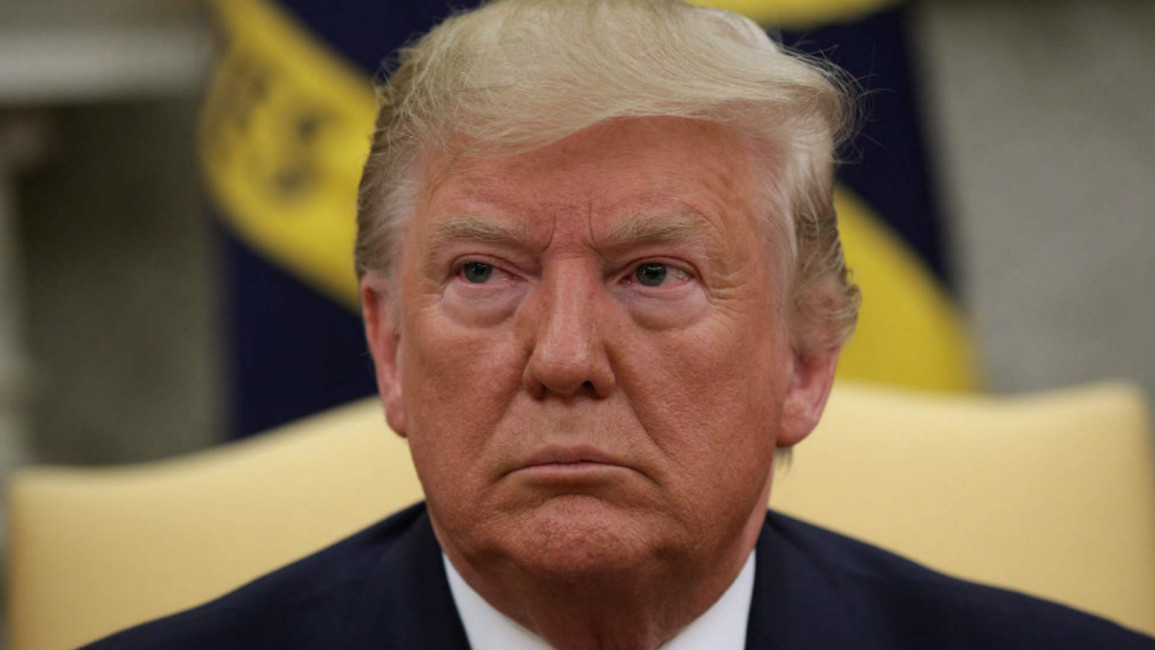White House holding up 'more than $100 million' in Lebanon aid, official confirms
David Hale, the top career diplomat at the State Department, acknowledged the freeze as he spoke under oath to lawmakers in the impeachment inquiry against President Donald Trump.
Asked about the controversial delay in military assistance to Ukraine, Hale said that it was not an isolated case and pointed to Lebanon.
"There was information that came to me starting in late June that a hold had been placed on both Ukraine assistance and Lebanon military assistance without any explanation," said Hale, the undersecretary of state for political affairs, according to a transcript released by lawmakers late Monday.
Read more: Lebanon scrabbles to avert imminent economic collapse
"It's still not been released," he said in the November 6 deposition when asked about the status of aid to Lebanon.
Asked why the White House was not disbursing money approved by Congress, Hale said there was apparently "a dispute over the efficacy of the assistance," but his full answer was redacted.
The Trump administration, which has not explained its decision, has been pressing for the isolation of Hezbollah, the militant Shia movement allied with Iran that has seats in the government.
The aid freeze came before the outbreak of massive protests in Lebanon against economic hardship and corruption, which triggered the resignation of Prime Minister Saad Hariri.
Two senior Democrats, in a recent letter to the White House, said that the "indefinite and unexplained hold" affected $105 million in aid to Lebanon including military vehicles, weapons and ammunition.
 |
Eliot Engel, chairman of the House Foreign Affairs Committee, and Ted Deutch, head of its Middle East subcommittee, wrote that Lebanon "continues to face imminent threats to its security forces from a resurgent ISIS, Al-Qaeda and its affiliates as well as an increasingly strong Hezbollah."
"A more capable (Lebanese Armed Forces) is clearly in the interests of the United States and Lebanon," they wrote.
Read more: Revolutionaries, not 'babes': Lebanon's women protesters call out sexist Arab men for objectifying them
Hale said the top State Department and Pentagon officials handling the Middle East wondered if aid freezes by the White House's Office of Management and Budget had become "a new normal."
There was no immediate allegation that the Trump administration sought personal gain from blocking the aid to Lebanon.
Just days ahead of the US decision to halt aid to Lebanon, reports suggested the UAE is mulling over an option to provide Lebanon with financial aid.
The UAE’s Central Bank Governor Mubarak Rashid al-Mansouri said his country was “conducting a study” to investigate recommendations to Emirati authorities “in light of recent developments in Lebanon”, reports said earlier this month.
However, the Emirati official said there was no agreement on specific issues.
Meanwhile, Protesters have insisted on a complete overhaul of the country's sectarian-based governance and celebrated the emergence of a national civic identity.
One of the main chants heard at the protests has been "all of them means all of them", calling for the resignation of the entire political class without exception.
More than 25 percent of the Lebanese live in poverty, the World Bank says.
Economic growth in Lebanon has stalled in recent years in the wake of repeated political crises, compounded by an eight-year civil war in neighbouring Syria.
The country faces one of the highest debt ratios in the world, at $86 billion or more than 150 per cent of the country's gross domestic product.



